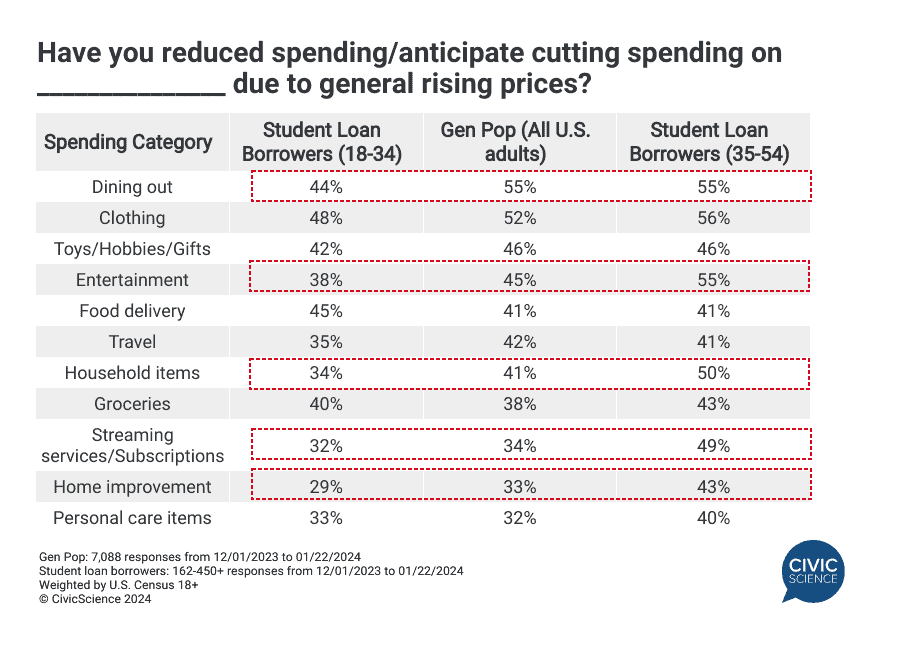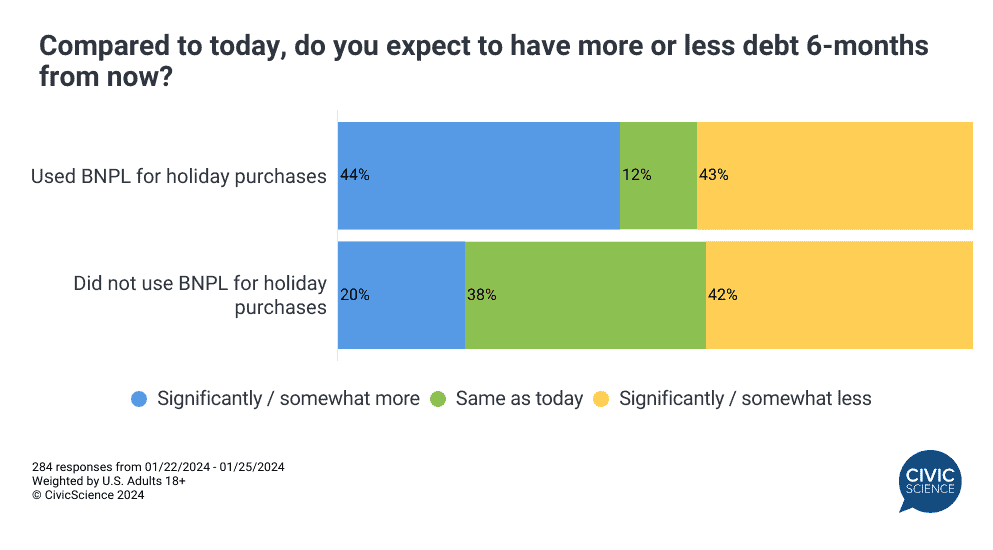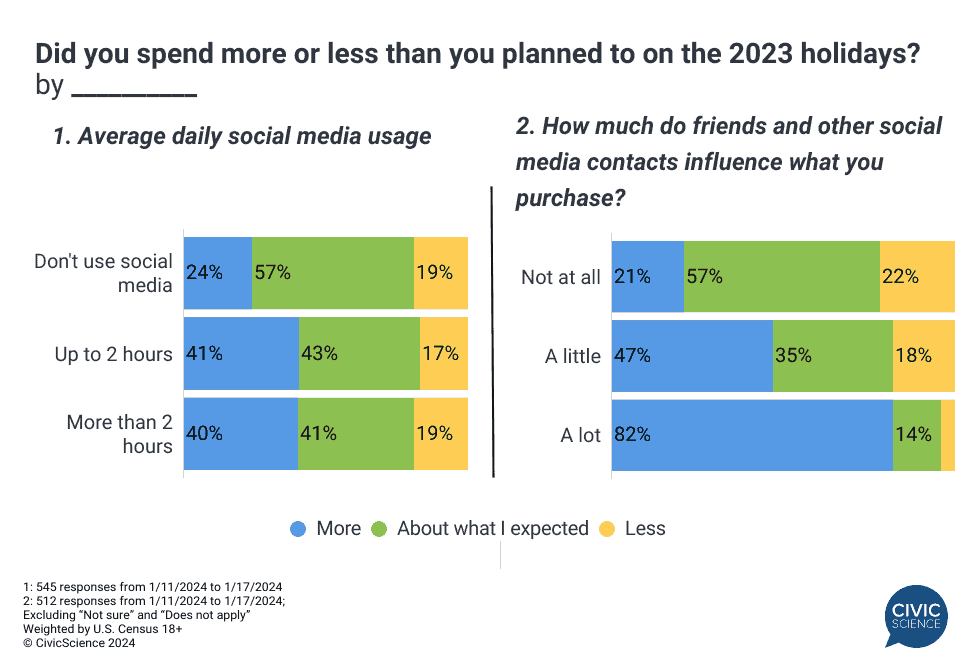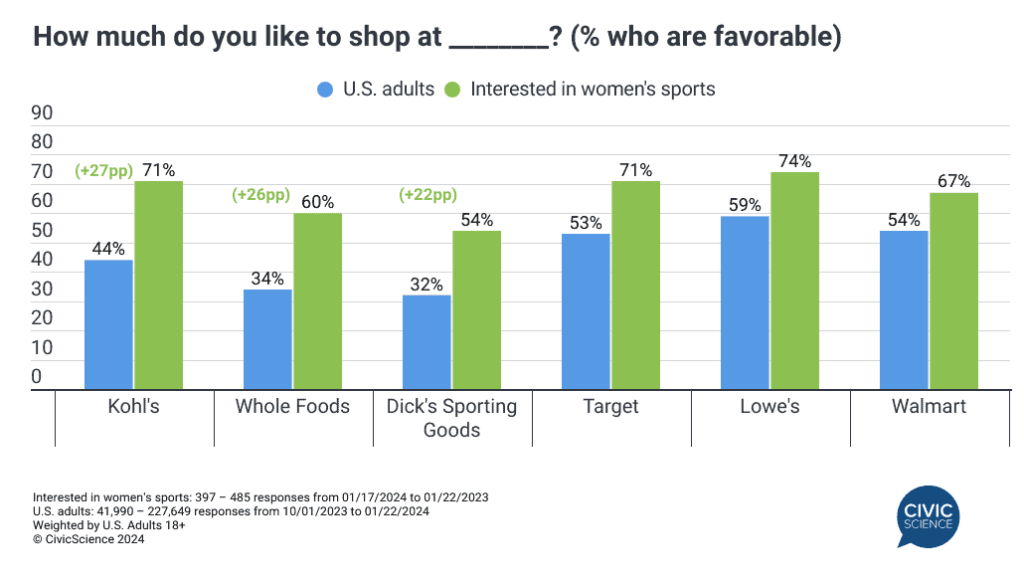Call it the Year of Trust.
Last year, it was emotional well-being. We nailed that one. All year, consumers shuffled their spending – amidst steady headwinds – prioritizing categories that made them “feel better,” like skincare, dining, and travel. They traded down on staples.
Retail therapy is real, especially among Gen Z and Millennials. The percentage of Americans who view shopping as a form of “self-care” reached record levels in Q4. Same for “eating something [they] enjoy” for self-care. Exercise-as-self-care declined. It’s easier to take Ozempic.
This pursuit of well-being pushed consumers through higher prices, student loan payments, and holiday gift-buying – perhaps recklessly – as credit card and buy-now-pay-later debt mounted. A financial reckoning is coming. We just don’t know when.
Trust won’t exactly displace emotional well-being as the theme of 2024. Consider it more of an extension. Institutional trust is in the shitter. We’re nostalgic for the days when it wasn’t.
In case you haven’t heard, it’s an election year and a pivotal one. Another Biden win would likely be a death knell for the Trump brand of politics. A Trump comeback could turn our entire socio-political apparatus on its head. It’s enough to make the most level-headed anxious.
So, we’ll entrench. We’ll seek comfort.
And it will start with media. The era of peak clickbait and fake news left us with plenty of scars. Just wait until the AI deep-fakes from our enemies overseas start landing. We’ll get burned, lament being duped, and entrench further.
We’ll find solace in mainstay outlets. When asked what form of media people trust most, the fastest growing answer is local news – particularly among independents and undecideds. When all else fails, turn to the news anchor who visited your elementary school when you were a kid.
Even the banner earnings from Netflix this week fit the narrative. With so many also-ran streaming services to choose from, pick the safe and reliable one.
Which brings us to brands. Trust in major companies is in the red, higher only than politicians and the media. But not all major companies…

For example, 66% of Americans trust McDonald’s, ranking above banks and only below hospitals and the police. It’s going to be a rocky year for the food service industry. I’ll bet it’s less rocky for McDonald’s.
Trust doesn’t necessarily mean “big,” although “established” will help (see above: local news). Whatever kind of brand you are, tell a story of trust in 2024. It will resonate.
And whatever you do, don’t breach what precious trust you have. People won’t forgive you this year.
Here’s what we’re seeing:
As for that financial reckoning, people are starting to feel the stress of rekindled student loan payments. One of the few things I got wrong last year was the alarm bell I rang in June about the return of student loan obligations. Logic dictated that debt holders would scale back their holiday spending to pay their bills when they showed up in October. But nope, the loaners plowed through. And now reality is setting in. Seventy-six percent of debt holders say they’re concerned about paying their loans, up from 64% in September. What’s still alarming, however, is that the youngest respondents remain relatively unfazed.

Student debt (and credit card debt) aren’t the only things to worry about. The use of buy now, pay later programs was up 14% YoY during the holiday season, and those bills are coming due as well. Twenty-three percent of holiday BNPL users say they owe over $500, and 84% are at least somewhat concerned about making their payments (including 37% who are very concerned). As you’d expect, these BNPL users skew younger. Something has to give.

Peer pressure (maybe) drove a lot of Christmas overspending. OK, this is my last bit about holiday spending, I promise, but it’s interesting. In our 3 Things to Know this week, we found that 1 in 3 U.S. adults say they spent more during the recent holiday season than planned (versus 21% who spent less). The over-spenders significantly over-index as heavy social media users. And, among people who say their friends on social media influence their purchase decisions, a whopping 82% say they spent more than expected. We also looked at nationwide concerns over microplastics and the popularity of this year’s Emmy-winning TV shows.

Amazon Prime Video is about to be ad-supported and the vast majority of subscribers will simply take it. Commercials will start showing up on Prime Video on January 29th – you can opt out for $3 a month if you’re a Prime member. Only 9% of members say they will. Most people will just roll with the ads or maybe watch the platform a bit less. Older people are the most pissed off about it – ironic, given they’ve watched TV with ads their whole lives. I’ll hammer the under on the 22% who say they plan to cancel the service.

Women’s sports are taking off and advertisers should accelerate it. Fan interest in women’s athletics is on a considerable upswing, particularly college basketball – which is almost single-handedly being driven by Caitlin Clark, who’s freaking awesome. Almost as notable is the incredible advertising appeal of these fans. Marketers should think beyond simply reaching these audiences – but using sponsorship and other resources to help grow them. The loyalty and customer lifetime value this can create is huge.

More awesomeness from the InsightStore™ this week:
- Comparing Tesla vs. Toyota EV intenders;
- The consumers behind the Stanley Cup craze;
- 5 interesting stats about DSW buyers.
The most popular questions this week:
Are you typically able to finish an entire condiment before it expires?
How connected are you to your inner child?
Do you typically enjoy your favorite part of a meal first or last?
How likely are you to admit to not paying attention during a conversation?
Answer Key: Condiments expire?; Seriously, stop; At the hip; 80% driver; First; I would bet more than most.
Hoping you’re well.
JD
Sign up for a free seven-day trial of our Sage AI-powered consumer analytics assistant, which lets you explore our database of 5+ billion insights and 600,000+ questions.
Was this email forwarded to you? Sign up here. If you are new to this list, check out our Top Ten to get caught up.
In case you’re wondering, I write this informal email to CivicScience clients, friends, and other VIPs every Saturday morning. If you’re getting this, you’re either one of those people or were referred to me by one of them. I always love your comments and feedback.
CivicScience Podcast | LinkedIn | Twitter | Email Archive | Answer Polls








